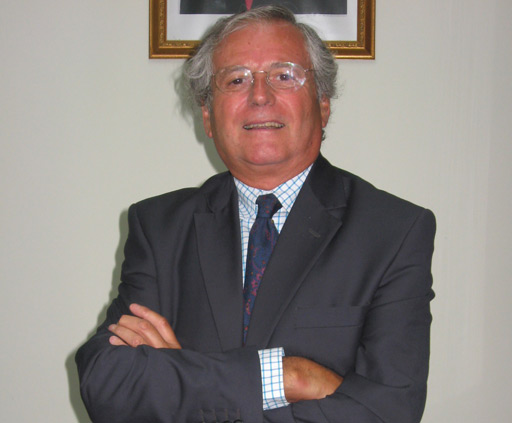
ASK
ME

REGISTER
NOW

Pada tanggal30 September 2013 kemarin, Prof. Dr. Jaques Gerstle dari Perancis melakukan kunjungan ke prodi Komunikasi Unika Atma Jaya. Pada waktu ini beliau juga sempat memberikan kuliah tamu tentang Komunikasi Politik yang merupakan bidang keahliannya. Setelah kuliah tamu berakhir, beliau diwawancarai olehj contributor Jakarta Post, Setiono Sugiharto dan beritanya muncul di harian Jakarta Post, pada Hari Jum’at, 4 Oktonber 2013. Berikut isi liputannya:
People
Jacques Gerstlé : Communicating Political Messages
Setiono Sugiharto, Contributor, Jakarta | People | Fri, October 04 2013, 1:35 PM
Renowned French pundit in the filed of political communications and a specialist in the role of the media in politics, Jacques Gerstlé, expressed his enthusiasm when several of Indonesia’s top universities invited him to give a talk on the relevance of media and political communication in democracy.
“I feel honored to share my ideas in prestigious universities in Indonesia and learn a lot about the political condition of the country”, he said in a recent interview.
Most of the topics he brought up during the talks centered on real issues, such as corruption and the role of the media for Indonesia’s upcoming election campaigns.
As a noted scholar and thinker, Gerstlé –now an emeritus professor at the political science department of the University of Paris Sorbonne –has penned numerous scholarly articles, which have been cited as references in political communication studies. He is best-known for his La Communication Politique (Political Communications), a book that has been acclaimed as highly influential in the field of political communication.
The book elucidates the close relationship between information, elections, power while detailing voting systems, partisan images, the art of governance and political debate.
Comparing Indonesia and his country, Gerstlé sees the former as a country practicing a mature democracy, which, he said, became evident in both regional and general elections.
While admitting that there are differences in the political systems of the two countries, Gerstlé emphasizes there are also universal trends for countries practicing democracy. He separates them into five categories: the technology of communication, rationalization, professionalism, codification and a legal framework.
Democracy is, as he sees it, the exercise of public reason and in its recent development has been heavily armed by the media, especially social media, as an effective instrument for conveying and communicating political messages.
Dating back from its origins as political language and rhetoric in ancient Greece, where verbal communication was its main tool, political communications today has rapidly evolved, taking many different shapes, expanding and seeping into the public sphere. One such an influential shape is social media.
On media owners with political ambitions in Indonesia who have the tendency to exploit the media for their political gains, Gerstlé said it was a common practice around the world, including Europe.
“There is no doubt that there is a degree of political parallelism between media and political parties, but it must be stressed that the media isn’t designed to control politics”, he affirmed, adding that “the news disseminated by the media isn’t neutral due to agenda setting, framing and priming, all of which create accessibility bias in the news.”
Apart from the dominance of the media as a political communication tool, Gerstlé added that political messages can also be effectively conveyed through a phenomenon he calls “political clientelism”, that is the exchange of goods and services for material support. This includes money politics.
“Voters’ social characteristics will always determine their political attitudes and consequently give them a idea of which political parties to choose”, he said.
Besides actively giving public lectures worldwide, Gerstlé also works for Notre Europe (an independent think tank devoted to European integration) as a researcher. This association was first established under the guidance of Jacques Delors in 1996 with the aim of bringing a closer union of the peoples of Europe and complete freedom of thoughts in the spirit of public good.
Under the auspices of Notre Europe, Gerstlé’s managed to publish important research on the impact of television on French referendum campaign in 2005, which helped generate useful insights into how the impact of the media cannot be simply measured based on the quantity of information alone. He also warned voters that the effect of political communication was always a gamble and therefore needed to be examined critically.
“Voters need to be aware that political messages often subtly reflect the political identity of politicians and they should be able to scrutinize what implications the messages conveyed have on the welfare of the public”.